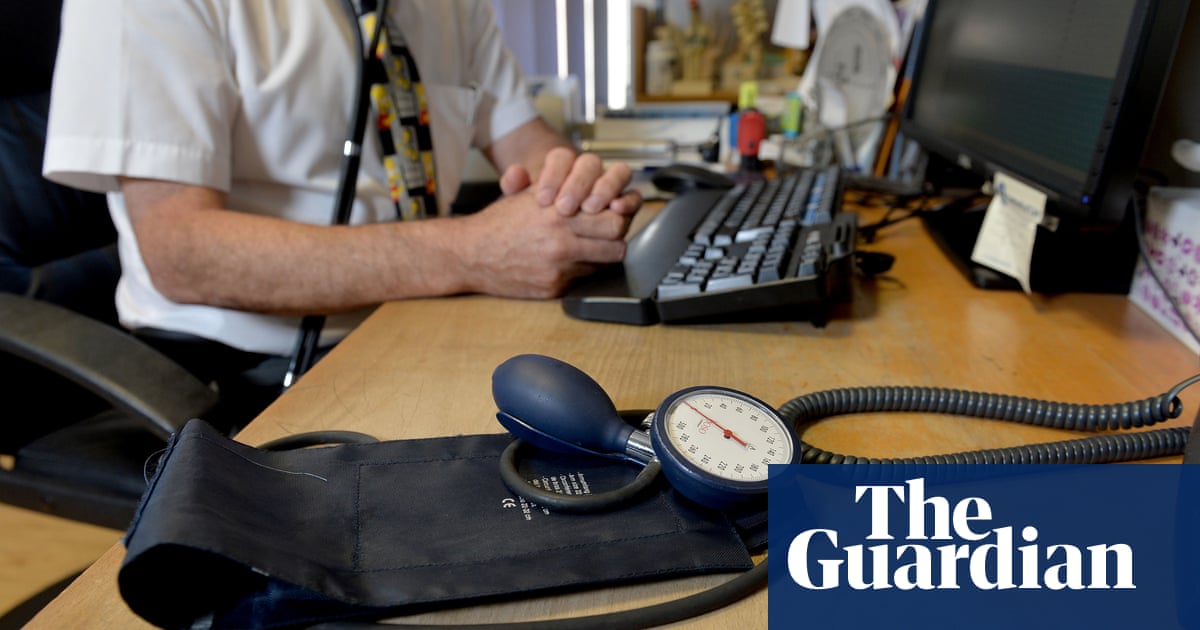
Global IT outages are causing serious problems for the NHS, including GP surgeries, with some being forced to turn away patients with routine appointments and only see those classed as emergencies.
Family doctor practices are experiencing major disruptions because they cannot access patients’ records or refer them to their local hospital for tests or appointments.
“Our members tell us that today’s outage is causing significant disruption to GP practice bookings and IT systems,” said Professor Kamila Hawthorne, president of the Royal College of GPs.
“Outages like this affect our access to important clinical information about our patients, as well as our ability to book tests, refer patients and establish the most appropriate treatment plan.”
The inability of GP practices to provide their usual range of care is likely to create backlogs of patients who either need to be seen by a GP or receive hospital care, or both.
It could also lead some people to seek help from already overburdened emergency services.
Pharmacies have also been affected, with many unable to provide patients with the medication they need as quickly as usual due to delays in receiving prescriptions from GPs resulting from the outages, which involve the Windows operating system.
Some hospitals have also had to restrict certain types of care, including radiotherapy. The Royal Surrey NHS Trust declared a “critical incident” earlier on Friday as outages affected a computer system it uses, and cancelled appointments for radiotherapy it was due to give to cancer patients.
In a statement, it said: “Royal Surrey has declared a critical incident due to external IT issues that are widely affecting services, including our own.
“This issue has affected Varian, the IT system we use to deliver radiotherapy treatments. This means we are currently unable to deliver scheduled radiotherapy treatments. We have contacted our patients scheduled to have radiotherapy this morning to reschedule appointments while we work to resolve these issues.”
However, it was later clarified that radiotherapy appointments scheduled for Friday afternoon would go ahead, but also that there were still “disruptions to the radiotherapy system which could affect appointments scheduled for next week”.
According to the PA Media news agency, around 3,700 GP practices in England are thought to have been affected. This includes the 60% of practices that use a medical records and appointment booking system called EMIS, which is not operating as normal today. “EMIS is down,” a source close to the GP said.
Matt, a 24-year-old student from London, had an appointment with his GP at 9am on Friday because he needed a prescription for antibiotics for an acute ear infection, but the appointment was cancelled because the clinic was closed.
“They called me 20 minutes later to tell me to come back and I could get a prescription online, but I couldn’t access it online and now the GP surgery isn’t answering calls. I have a splitting headache.”
Matt said he returned to the clinic a third time hoping to pick up a paper prescription in person, but was told that wasn’t possible.
“They can’t deliver a physical prescription because they don’t have physical forms since everything is done online. They told me I might have to wait for someone to come and deliver them, [before saying] “They can’t deliver them at all,” he said.
“They told me I could go to a private GP and they might have the appropriate form, and if not I would have to wait until Monday to get it. [a prescription]They told me I could try the emergency room, but they are not sure of the wait times because they don’t know which systems are down where.
after newsletter promotion
Sophie, from Bolton, has stage two breast cancer and was due to have chemotherapy at a health centre on Friday lunchtime. “I have treatment every Friday but they rang me this morning and told me not to come until they called me. My medication is made for me in a lab and that lab uses Windows so they don’t have the medication.”
Sophie, 46, was due to change medication next week and is unsure how the rest of her treatment might be affected by the loss of Friday’s chemotherapy session and the computer outage.
“Some people are going to have to have chemotherapy two or three days in a row, and that could have a big impact on them because we don’t know how long it’s going to last,” she said. “Of course, not missing any treatments, that seems pretty important.”
Pharmacy operators, who see people with minor illnesses who cannot get a GP appointment, have asked the public to be patient as they try to overcome the supply problems.
Dr Leyla Hannbeck, chief executive of the Independent Pharmacies Association, said: “Pharmacies are experiencing delays in prescriptions arriving through GP systems as the systems are down, and there are also delays in medicines being received in stock due to IT system failures at some wholesalers.
“As the GP appointment system is broken, more and more patients are being referred to pharmacies for minor ailments.
“We ask the public to be patient if there are any delays as these issues are beyond our control and we are doing everything we can to ensure patients receive their medicines and treatments.”
NHS England said: “The NHS is aware of a global IT outage and issue with EMIS, an appointment booking and patient records system, which is causing disruption to the majority of GP practices.
“The NHS has long had measures in place to manage disruption, including the use of paper medical records and handwritten prescriptions, as well as normal telephone systems.”


